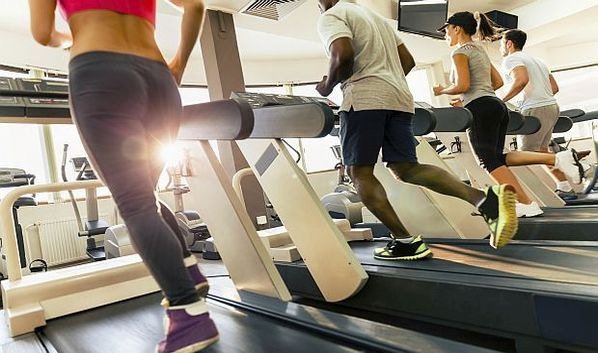
With gyms closed by social distancing, parking lots overflowing at hiking trailheads and bike shops with no bikes left to sell, any snapshot of the American fitness scene would be a blur, but that doesn’t mean sports nutrition brands can’t find a new focus, says a product development consultant working with the supplement industry.
Performance nutrition formulation expert Shawn Wells says that as gym members head to the running trails, the industry should be thinking about not just endurance sports but also marketing “resilience” as part of a post-gym fitness lifestyle. In the middle of a pandemic, Wells says, people are thinking not just about performance, or getting lean or achieving fitness. They are thinking about being strong enough and healthy enough to resist infection. Fitness, especially endurance fitness, is based on “positive stress” and helps people build capacity to endure less positive stresses, Wells says, describing resilience as having a deep enough “bucket” for stress that it does not overflow and cause illness. Fitness, he says, “can help you adapt and grow a bigger bucket and therefore you are more bioresilient.”
That could require a rethinking of how sports nutrition is sold, Wells says. The selling may need to be less about performance or aesthetics and more about maintaining the body as it tackles new fitness regimens. Those regimens could be, he says, centered more around building immunity than building muscle.
Wells points to protein as an ingredient that translates well to that goal. Protein already made the leap from weight room to the mainstream via weight loss, but it’s also a good ingredient for endurance athletes adapting to higher mileage totals and intensity. “Whether you’re doing strength or endurance training, I think protein should still be a focus,” Wells says.
The biochemist and registered dietician also points to ingredients, including zinc, that are well known for immunity properties but also help athletes recover from endurance training. “You’re seeing liposomal vitamin C come into the picture more and that’s a powerful one as far as recovery.”
The overlap between athletic recovery and immunity is wide, Wells says, especially in mushroom supplements. The subcategory is showing strong sales—NBJ expects mushroom supplement sales to increase by 39.5% in 2020—but much of the current buzz centers on immunity. There is a good story to tell around athletic recovery, too, Wells argues. He is especially interested in L-ergothioneine, an antioxidant amino acid found in mushrooms that can help build aerobic capacity and promotes wellness. “It’s a fascinating ingredient,” he says.
Sleep is another area where sports recovery and immunity pair well. Wells likes melatonin, magnesium and magnolia bark for setting the stage for better sleep, a fundamental part of endurance athlete’s training program. ��“Quality of sleep is going to dictate quite a bit in terms of your recovery and your resilience,” Wells says.
What the quarantine era has taught Americans, Wells says, is that movement is an essential component in quality of life. “I think you're seeing endurance sports grow because it allows for just movement and we’re feeling cooped up.” That awareness, he adds, is a great spot for a conversation about the fitness/wellness link. “I think it’s less about more muscle mass and more about health, longevity, immunity,” Wells says.
Consumers are already making that connection. Smart brands, Wells says, will be making it too.

About the Author(s)
You May Also Like





